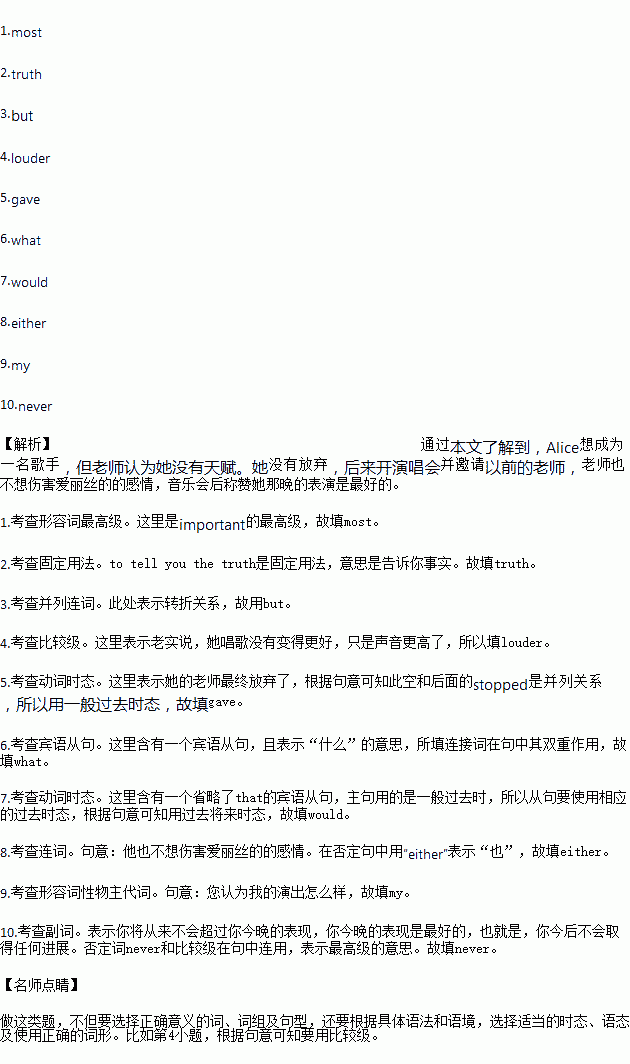题目内容
Alice always wanted to be a singer. Music was the 1.important thing in her life but, to tell you the2. (true), she took lessons for years and practised every day, 3. in spite of all this, her voice didn't improve. Honestly, it didn’t get better, it just got 4. (loud).
Her teacher finally 5. (give)up and stopped the lessons, but Alice refused to quit(停止), and one day she decided to give a concert and invited her former teacher to attend.
The teacher was very worried about 6.to say after the performance. She knew it 7.be terrible and it was. She didn't want to tell a lie, but she didn’t want to hurt Alice’s feelings 8. . Finally, she got an idea and went backstage(后台) to greet her former (先前的)pupil.
“Well”, said Alice, “what did you think of 9.performance?”
“My dear,” said the teacher, “you’ll 10. be better than you were tonight.”
 津桥教育计算小状元系列答案
津桥教育计算小状元系列答案
